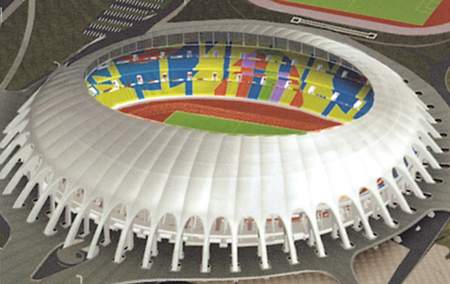| Busan, the second largest city in Korea, has a temperate sea climate, with everything from mountains, rivers, the sea, and hot springs. It is a nature marine-based culture city with events offered throughout the year.
|
|
 |
Busan is the nationí»s best-known port and is the host city of the 2002 FIFA World CupTM and the 14th Asian Games in 2002. There is a deep port with minimal tidal differential. And due to its geographical location and modern port facilities, Busan Port is third in the world in terms of the quantity of goods transported in and out. Every summer, Busan fills with vacationers from all over the country who visit Gwangalli and Haeundae Beaches, located near the downtown area.
The main color is blue, referring to highlights of regional characteristics. The deck set around the stadium incorporates Saturní»s rings to express harmony with heaven and earth and unison with outer space. (breaking away from generalized provincialism)
Korean Style: Korean four directional colors (blue, white, red, black), are used in the stadium to center on the four guardian deities. It also encourages spectators to move around.
Global Style: Considering the characteristics of each space, select color in harmony with psychological functions.
Location Geoje-dong, Yeonje-gu, Busan(sports complex)
Capacity 53,926 seats
|
|
|
|
|
|
| 08-05-2002 |
|

